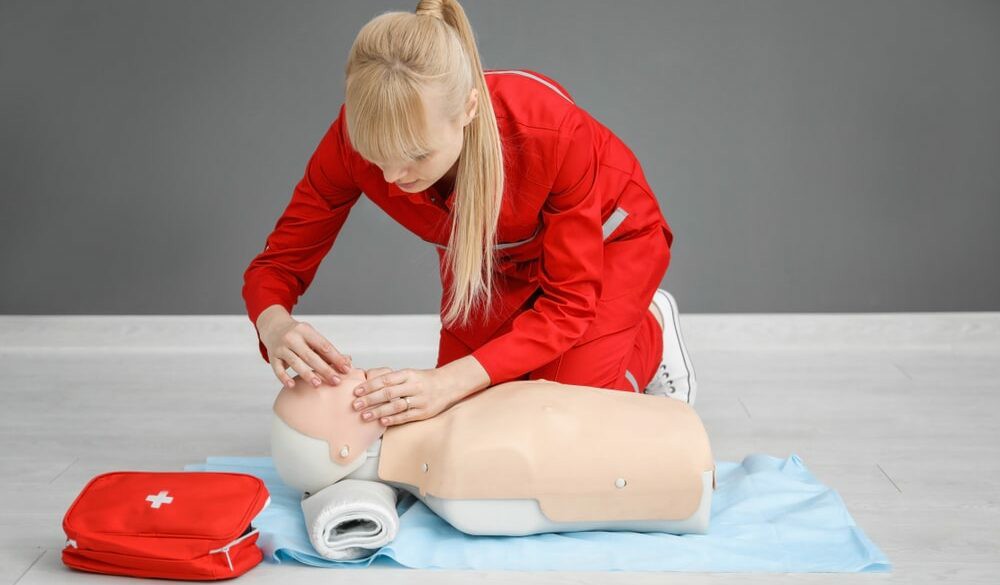Mastering Workplace Safety: The Unmatched Importance of First Aid & CPR Training in Ireland
In today’s fast-paced working environment, ensuring the safety and well-being of employees is not just a legal obligation; it is a fundamental responsibility that every organization must prioritize. First Aid and CPR training are crucial components of workplace safety, equipping employees with the necessary skills to respond effectively during emergencies. This blog post delves into the significance of First Aid Certification, the benefits it brings to both employers and employees, and how it reduces workplace accidents across Ireland's bustling cities like Dublin, Cork, Galway, Limerick, and Waterford.
The Importance of First Aid & CPR Training
First Aid training provides individuals with the skills and knowledge needed to respond promptly and confidently during emergencies. Whether it’s a minor cut, a severe allergic reaction, or a cardiac arrest, First Aid and CPR techniques can significantly improve outcomes for injured or ill individuals. Here are some critical reasons why organizations should prioritize the training of their employees:
- Quick Response Saves Lives: In emergencies, every second counts. Trained employees can provide immediate assistance, potentially saving lives or reducing the severity of injuries.
- Increased Workplace Safety: A focus on First Aid training creates a culture of safety, reducing workplace accidents and promoting a proactive approach to health and well-being.
- Compliance with Regulations: Under Irish health and safety legislation, employers are required to ensure that appropriate First Aid measures are in place. Compliance not only prevents penalties but also demonstrates a commitment to employee welfare.
Essential First Aid Skills Every Employee Should Master
First Aid skills can be categorized into two main areas: basic first aid and emergency response capabilities. Here are a few essential skills:
- Assessing the Situation: Recognizing an emergency and initiating the emergency response protocol.
- Basic Wound Care: Understanding how to clean and dress minor injuries.
- CPR Techniques: Mastering chest compressions and rescue breaths for cardiac emergencies.
- Choking Response: Implementing the Heimlich maneuver and understanding when to call for help.
CPR Essentials: Techniques for Effective Emergency Response
Cardiopulmonary resuscitation (CPR) can be the difference between life and death. Recommended CPR techniques include:
- Performing chest compressions at a rate of 100-120 per minute.
- Delivering rescue breaths at a ratio of 30 compressions to 2 breaths.
- Using an Automated External Defibrillator (AED) if available.
Navigating Workplace First Aid Regulations in Ireland
In Ireland, the Health and Safety Authority (HSA) mandates that employers conduct workplace assessments to determine First Aid needs. According to the regulations:
- Workplaces must have an adequate number of trained First Aid personnel based on employee numbers.
- First Aid kits must be regularly checked and maintained.
- Employers must provide information and instruction about First Aid arrangements to employees.
Benefits of First Aid Certification for Employers and Employees
Obtaining a First Aid Certification brings various advantages:
- Employee Confidence: Trained employees feel empowered to act swiftly in emergencies, fostering confidence among staff.
- Reduced Liability: By ensuring safety measures are in place and personnel trained, organizations can lower their liability risks.
- Improved Team Dynamics: Participating in training together enhances teamwork and communication among employees.
Emergency First Aid Procedures: Step-by-Step Guidelines for Immediate Action
Immediate response steps can make all the difference in emergencies:
- Ensure Safety: Check if the scene is safe before approaching.
- Call for Help: Dial emergency services for assistance (e.g., 999 in Ireland).
- Assist the Injured: Provide First Aid as per your training until help arrives.
Selecting the Ideal First Aid Course: Online Versus Traditional Training Options
Today's training landscape includes both online First Aid courses and traditional methods. Considerations for selection include:
- Flexibility: Online courses offer convenience; employees can train at their own pace.
- Hands-On Experience: Traditional classes provide practical experiences with simulated scenarios.
- Certification: Ensure any course provides recognition from appropriate authorities.
Conclusion & Call to Action
In conclusion, the benefits of First Aid and CPR training are profound, enhancing workplace safety and compliance while fostering a culture of preparedness. Business owners, HR professionals, and safety managers in Dublin, Cork, Galway, Limerick, and Waterford should prioritize enrolling their teams in accredited First Aid courses.
Ready to take the next step in workplace safety? Enroll today in a comprehensive First Aid & CPR training course and ensure your team is prepared for emergencies. For more information, reach out to us at [email protected].



 349,500 Offered Certificates
349,500 Offered Certificates
 24/7 Online Training
24/7 Online Training
 Money Back Guarantee
Money Back Guarantee
 Fully Accredited Courses
Fully Accredited Courses
